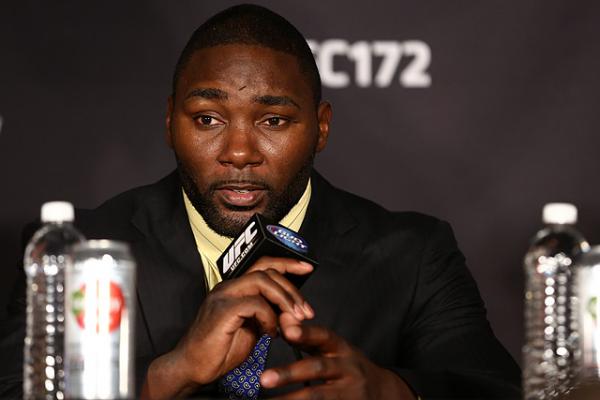It appears the UFC is cracking down on domestic violence, or so it seems. Recent headlines have spotlighted the likes of Thiago Silva and Anthony “Rumble” Johnson as perpetrators of violence against women, but the UFC’s policy on domestic violence is consistently inconsistent. Let me explain.
Thiago Silva has been on the receiving end of scrutiny for his acts against his wife. After the charges were “dropped” and his name was “cleared,” the UFC welcomed him back home to the organization. His contract was subsequently revoked after the release of disturbing video footage where he, his wife and a handgun were involved. All bets were off, he was done with the UFC.
Shortly thereafter, headlines boomed stating Johnson was suspended indefinitely by the UFC after reports of domestic violence surfaced. The promotion wasted little time in distancing itself from the potential title contender.
Most anyone would agree that a fighter with domestic violence charges should be released, but there remain several caveats, or loopholes, regarding criminal charges, especially ones involving intimate-partner violence.
While the UFC appears to be making an example out of Silva and Johnson, if you look beneath the surface, you’ll find the promotion lacks more integrity than meets the eye. For example, there are at least two UFC fighters—Jeremy Stephens and Abel Trujillo—who are still under contract and have violent charges on their rap sheets.
Trujillo has twice pled guilty to domestic abuse assault causing bodily injury, both cases involving the mother of his child. In 2012, Stephens was set to face Yves Edwards at UFC on FX: Silva vs. Browne. He was arrested, detained and held without bail on felony willful injury and misdemeanor assault, a charge which was subsequently dropped in exchange for a guilty plea. During the debacle, UFC President Dana White had attempted to help Stephens get out of jail to get in the cage. Years later, Stephens remains on the UFC roster.
There were and are many factors at play when it comes to a fighter’s criminal history and longevity in the sport of MMA.
First, the extent of a crime needs to be investigated. We’re all quick to fire off against fighters with domestic violence or assault charges on their record, but many fail to understand that several violent charges are often pled down to “disturbing the peace” or “disorderly conduct,” when in reality, the true crime could reflect actions far more violent than a violation implies. Perhaps an investigative team needs to look into pre-sentence investigations rather than taking a criminal change at face value.
Second, if you’re going to punish one, punish them all. It’s not fair to hand pick which fighters you kick to the curb. While Stephens and Trujillo flourish in the UFC, Johnson and Silva are forced to sit outside, scratching their heads.
Third, this isn’t a “don’t ask, don’t tell” world. On the surface, the integrity of the promotion seems valid, but scratching under the surface reveals a breadth of inconsistencies—and, perhaps, favoritism—among fighters under contract with the UFC and Zuffa.
With violent crimes, the answer is simple: One and done. Because if you’re going to employ felons and historically violent individuals, prepare to fall victim to criticism and scrutiny of the public. And if you’re going to keep certain fighters over others, prepare to explain why the rules don’t apply for all.

